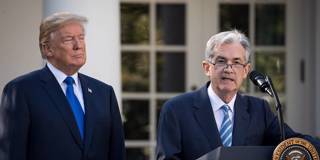The fear among monetary policymakers that governments will reassert control over interest rates is exaggerated. Instead of bemoaning the surge of comment and challenge, central banks need to raise their game, enhance their transparency, and get better at explaining and justifying their actions and decisions.
LONDON – US President Donald Trump’s decision to nominate economist Judy Shelton for one of the vacant positions on the Federal Reserve Board has put the future of central bank independence back on the agenda. Shelton has cast doubt on the desirability of, and legal basis for, Fed independence, saying last year, “I don’t see any reference to independence in the legislation that has defined the role of the Federal Reserve.” And she has argued for “a more coordinated relationship with both Congress and the President.” If Fed policy were “coordinated” with Trump, then it is fairly clear who would be calling the shots.

LONDON – US President Donald Trump’s decision to nominate economist Judy Shelton for one of the vacant positions on the Federal Reserve Board has put the future of central bank independence back on the agenda. Shelton has cast doubt on the desirability of, and legal basis for, Fed independence, saying last year, “I don’t see any reference to independence in the legislation that has defined the role of the Federal Reserve.” And she has argued for “a more coordinated relationship with both Congress and the President.” If Fed policy were “coordinated” with Trump, then it is fairly clear who would be calling the shots.